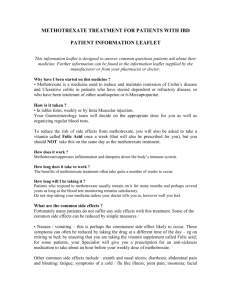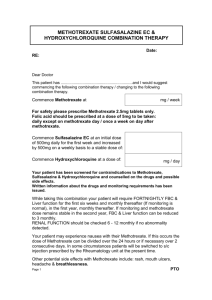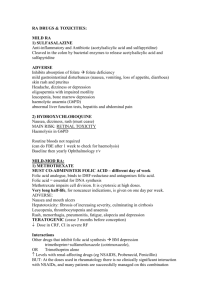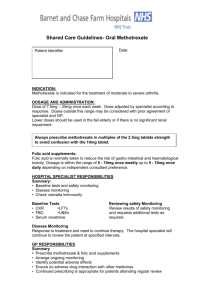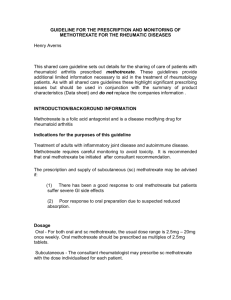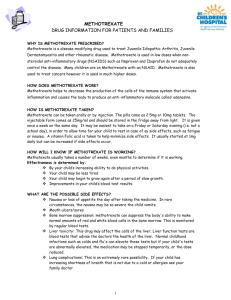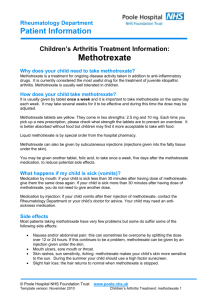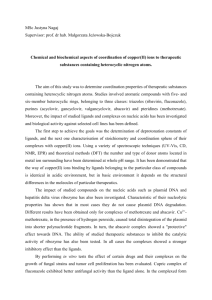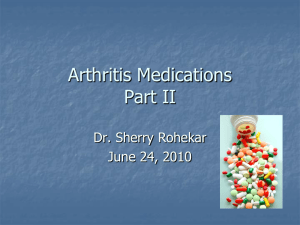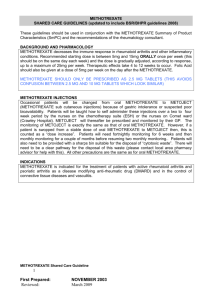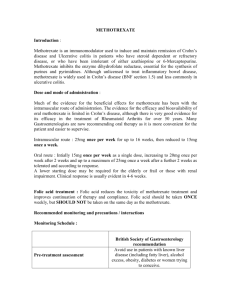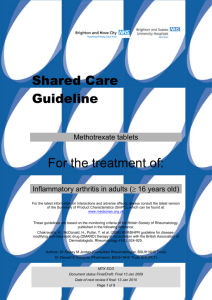ADALIMUMAB & METHOTREXATE COMBINATION THERAPY
advertisement
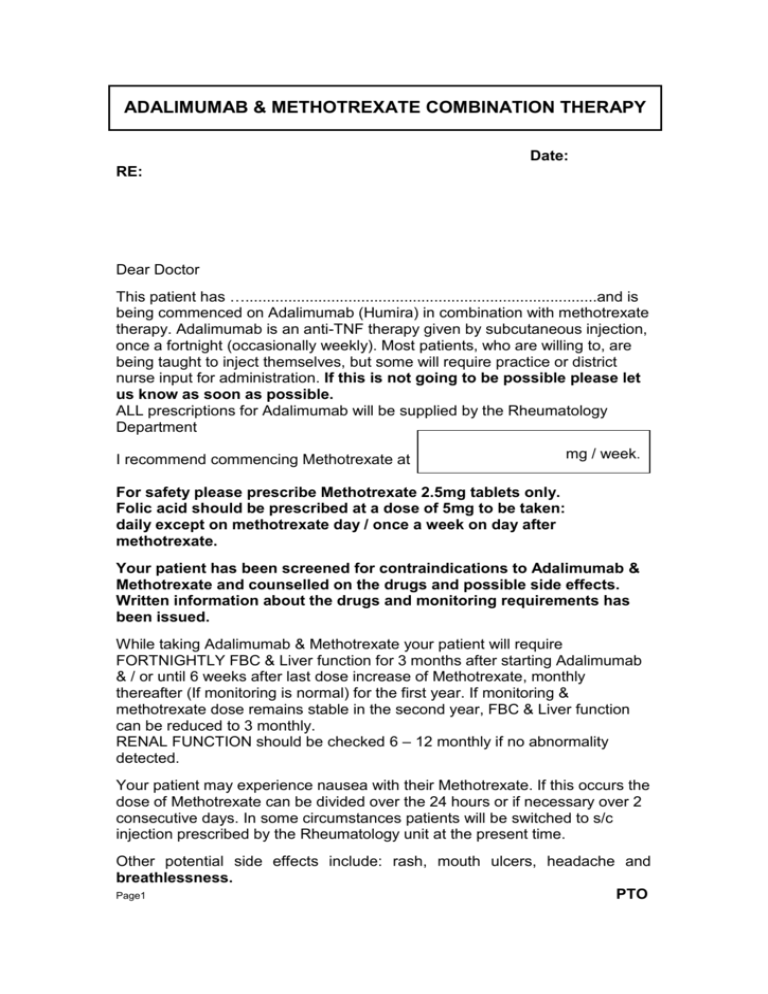
ADALIMUMAB & METHOTREXATE COMBINATION THERAPY Date: RE: Dear Doctor This patient has …..................................................................................and is being commenced on Adalimumab (Humira) in combination with methotrexate therapy. Adalimumab is an anti-TNF therapy given by subcutaneous injection, once a fortnight (occasionally weekly). Most patients, who are willing to, are being taught to inject themselves, but some will require practice or district nurse input for administration. If this is not going to be possible please let us know as soon as possible. ALL prescriptions for Adalimumab will be supplied by the Rheumatology Department I recommend commencing Methotrexate at mg / week. For safety please prescribe Methotrexate 2.5mg tablets only. Folic acid should be prescribed at a dose of 5mg to be taken: daily except on methotrexate day / once a week on day after methotrexate. Your patient has been screened for contraindications to Adalimumab & Methotrexate and counselled on the drugs and possible side effects. Written information about the drugs and monitoring requirements has been issued. While taking Adalimumab & Methotrexate your patient will require FORTNIGHTLY FBC & Liver function for 3 months after starting Adalimumab & / or until 6 weeks after last dose increase of Methotrexate, monthly thereafter (If monitoring is normal) for the first year. If monitoring & methotrexate dose remains stable in the second year, FBC & Liver function can be reduced to 3 monthly. RENAL FUNCTION should be checked 6 – 12 monthly if no abnormality detected. Your patient may experience nausea with their Methotrexate. If this occurs the dose of Methotrexate can be divided over the 24 hours or if necessary over 2 consecutive days. In some circumstances patients will be switched to s/c injection prescribed by the Rheumatology unit at the present time. Other potential side effects include: rash, mouth ulcers, headache and breathlessness. Page1 PTO Adalimumab can cause any of the following side effects: injection site reaction, headache, joint flare, ‘flu-like’ symptoms, abdominal pain, dyspepsia, rash, sepsis. Treatment should be withheld and the Rheumatology Department contacted if: Neutrophils < 1.5 x 109 new/increasing dyspnoea or cough Platelets < 100 x 109 MCV > 105 fl unexplained fall in serum ALBUMIN rash or oral ulceration deterioration in renal function (reduce dose) abnormal bruising/sore throat (urgent FBC) sepsis >2 fold increase in ALT (from upper limit of reference range) Please note that live vaccines should not be given to patients taking Adalimumab and Methotrexate. Pregnancy and fatherhood should be avoided in all patients taking these drugs, as Methotrexate is teratogenic. Breastfeeding should also be avoided. If your patient is in close skin contact with chickenpox or shingles, then Adalimumab & Methotrexate should be stopped for 2 weeks and: Varicella Zoster antibody IgG levels checked (after discussion with Rheumatology or Microbiology) If negative your patient should receive 1gm IM immunoglobulin – via pharmacy at Victoria Hospital Kirkcaldy or Queen Margaret Hospital Dunfermline. If your patient develops chickenpox or shingles then Adalimumab & Methotrexate must be stopped and high dose anti-virals should be commenced as soon as possible. The use of NSAID’s in a standard dose with Methotrexate is NOT contraindicated. Once stable most patients will be able to reduce or stop their NSAID. Please note that Adalimumab should be stopped for 4 weeks before surgery and restarted 2 weeks following surgery if clear of infection. There is an increased risk of certain infections – urine, chest and soft tissue infections. Prompt treatment with antibiotics (with specimens sent to microbiology, where possible) and withholding the anti-TNF therapy until infection cleared is recommended. For full SPC please refer to Fife ADTC website. Yours Sincerely General enquiries: 01592 648193 Page 2 Updated October 2012 Version 1 due for review October 2013
